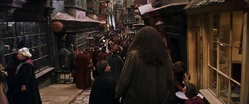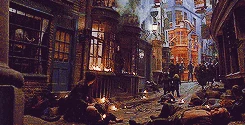Romanticism (also the
Romantic era or the
Romantic period)
was an artistic, literary, and intellectual movement that originated in
Europe toward the end of the 18th century and in most areas was at its
peak in the approximate period from 1800 to 1850. Partly a reaction to
the
Industrial Revolution,
it was also a revolt against the aristocratic social and political norms of the
Age of Enlightenment and a reaction against the scientific
rationalization of nature.
It was embodied most strongly in the visual arts, music, and literature, but had a major impact on historiography,
education
and the
natural sciences.
Its effect on politics was considerable and complex; while for much of the peak Romantic period it was associated with
liberalism and
radicalism, its long-term effect on the growth of
nationalism was probably more significant.
The movement validated intense emotion as an authentic source of
aesthetic experience, placing new emphasis on such emotions as
apprehension,
horror and terror, and
awe—especially that which is experienced in confronting the
sublimity of untamed nature and its picturesque qualities: both new aesthetic categories. It elevated
folk art and ancient custom to a noble status, made spontaneity a desirable characteristic (as in the musical
impromptu),
and argued for a "natural" epistemology of human activities, as
conditioned by nature in the form of language and customary usage.
Romanticism reached beyond the
rational and
Classicist ideal models to raise a revived
medievalism
and elements of art and narrative perceived to be authentically
medieval in an attempt to escape the confines of population growth,
urban sprawl, and
industrialism. Romanticism embraced the exotic, the unfamiliar, and the distant in modes more authentic than
Rococo chinoiserie, harnessing the power of the imagination to envision and to escape.
Although the movement was rooted in the German
Sturm und Drang
movement, which prized intuition and emotion over the rationalism of
the Enlightenment, the events of and ideologies that led to the
French Revolution planted
the seeds from which both Romanticism and the
Counter-Enlightenment
sprouted. The confines of the Industrial Revolution also had their
influence on Romanticism, which was in part an escape from modern
realities. Indeed, in the second half of the 19th century, "
Realism" was offered as a polarized opposite to Romanticism.
Romanticism assigned a high value to the achievements of 'heroic'
individualists and artists, whose pioneering examples, it maintained,
would raise the quality of society. It also vouched for the individual
imagination as a critical authority allowed of freedom from classical
notions of form in art. There was a strong recourse to historical and
natural inevitability, a
Zeitgeist, in the representation of its ideas.
Basic characteristics
Defining the nature of Romanticism may be approached from the
starting point of the primary importance of the free expression of the
feelings of the artist. The importance the Romantics placed on
untrammelled feeling is summed up in the remark of the German painter
Caspar David Friedrich that "the artist's feeling is his law".
To
William Wordsworth poetry should be "the spontaneous overflow of powerful feelings".
In order to truly express these feelings, the content of the art must
come from the imagination of the artist, with as little interference as
possible from "artificial" rules dictating what a work should consist
of.
Coleridge
was not alone in believing that there were natural laws governing these
matters which the imagination, at least of a good creative artist,
would freely and unconsciously follow through
artistic inspiration if left alone to do so.
As well as rules, the influence of models from other works would impede the creator's own imagination, so
originality was absolutely essential. The concept of the
genius,
or artist who was able to produce his own original work through this
process of "creation from nothingness", is key to Romanticism, and to be
derivative was the worst sin.
This idea is often called "romantic originality."
Not essential to Romanticism, but so widespread as to be normative,
was a strong belief and interest in the importance of nature. However
this is particularly in the effect of nature upon the artist when he is
surrounded by it, preferably alone. In contrast to the usually very
social art of the
Enlightenment,
Romantics were distrustful of the human world, and tended to believe
that a close connection with nature was mentally and morally healthy.
Romantic art addressed its audiences directly and personally with what
was intended to be felt as the personal voice of the artist. So, in
literature, "much of romantic poetry invited the reader to identify the
protagonists with the poets themselves".
According to
Isaiah Berlin,
Romanticism embodied "a new and restless spirit, seeking violently to
burst through old and cramping forms, a nervous preoccupation with
perpetually changing inner states of consciousness, a longing for the
unbounded and the indefinable, for perpetual movement and change, an
effort to return to the forgotten sources of life, a passionate effort
at self-assertion both individual and collective, a search after means
of expressing an unappeasable yearning for unattainable goals."
(Source Wikipedia)


